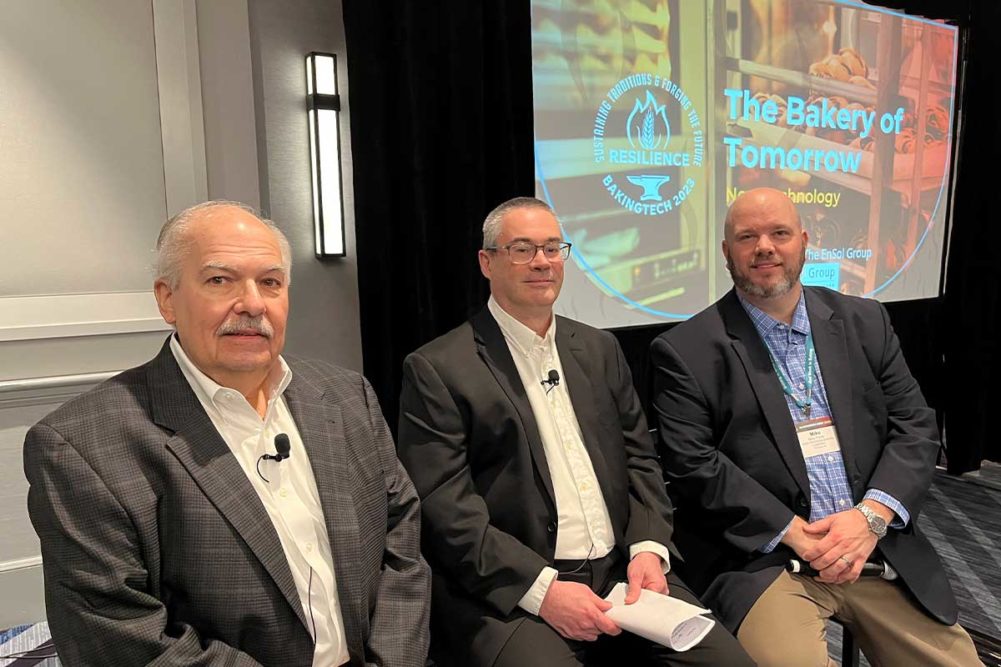CHICAGO — The bakery of tomorrow should bring together automation, information and people who will have an understanding about how all the components work and the skills to help bakeries run more efficiently.
That was the message at a session presented at BakingTech 2023, held Feb. 28 to March 2 in Chicago. The “Bakery of Tomorrow” talk was presented by Jim Kline, president of The EnSol Group; Daniel Millar, factory automation and packaging business development manager, Emerson Automation Systems; and Mike Porter, president and chief operating officer of New Horizons Baking Co., Norwalk, Ohio.
Mr. Kline stressed the importance of bakeries having fact-based data.
“At the local level, a lot of bakeries don’t have fact-based data, which enables you to make actionable decisions and investments,” he said. “By fact-based data, it means really based on fact. You have operators collecting information and maintenance collecting information and you use that as a basis. The fact of the matter is it’s like having the fox watch the hen house. There needs to be change in that area.”
Even existing equipment can be retrofit to collect data and many options are available to even smaller and mid-sized bakeries without a lot of cash.
“The censors, the components that go into it, it doesn’t have to break the bank,” he explained. “There are some simple systems you can start with.”
Any changes bakeries are considering need to bring together all stakeholders to ensure every pertinent piece of information is collected. That includes people who run the machinery in bakeries because they may have years of experience and understand subtleties of the equipment others do not.
The equipment at bakeries will be able to communicate with one another and information will be available on iPads and smartphones.
“The bakery of the future is really the bakery of today,” Mr. Kline said. “The technologies are available for retrofit. Bakeries that had manual processes made the change.”
Mr. Millar suggested that when starting a new project, bakeries need to choose one that is manageable.
“When you are doing a pilot project, don’t bite off more than you can chew. Start small, pick a machine, pick an asset,” he said.
He said that bakers should do their research and obtain the basics needed for interconnectivity, which will make implementation easier.
“Avoid data overload,” Mr. Millar said. “Get the proper data to the proper people. Sustainability people do not need to know what the maintenance KPIs are for the machine.”
Mr. Porter stressed the importance of ensuring that workers are kept informed through the process of upgrades and changes.
“Make no mistake. We are in the baking business, but we’re really in the people business,” he said. “Everything we do as a company and individuals should be on behalf of ‘What is the impact going to have on the people?’ ”
He explained that workers want to have purpose in their lives, so explaining how they fit into changes creates an environment where workers want to stay. And that holding them accountable is not just pointing out what they’re doing wrong, but also providing positive feedback.
“If we’re going to embrace technology … we have to understand that the workforce is not going to adapt to us. We have to adapt to them,” Mr. Porter said. “And if we don’t, we’re going to lose in the long run.”






